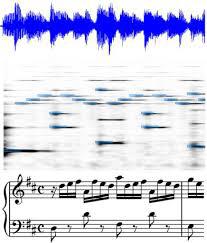Search Results for author: Bob L. Sturm
Found 7 papers, 4 papers with code
Reliable Local Explanations for Machine Listening
1 code implementation • 15 May 2020 • Saumitra Mishra, Emmanouil Benetos, Bob L. Sturm, Simon Dixon
One way to analyse the behaviour of machine learning models is through local explanations that highlight input features that maximally influence model predictions.
GAN-based Generation and Automatic Selection of Explanations for Neural Networks
no code implementations • 21 Apr 2019 • Saumitra Mishra, Daniel Stoller, Emmanouil Benetos, Bob L. Sturm, Simon Dixon
However, this requires a careful selection of hyper-parameters to generate interpretable examples for each neuron of interest, and current methods rely on a manual, qualitative evaluation of each setting, which is prohibitively slow.
Ensemble Models for Spoofing Detection in Automatic Speaker Verification
1 code implementation • 9 Apr 2019 • Bhusan Chettri, Daniel Stoller, Veronica Morfi, Marco A. Martínez Ramírez, Emmanouil Benetos, Bob L. Sturm
Our ensemble model outperforms all our single models and the baselines from the challenge for both attack types.
Audio and Speech Processing Sound
The "Horse'' Inside: Seeking Causes Behind the Behaviours of Music Content Analysis Systems
no code implementations • 9 Jun 2016 • Bob L. Sturm
We perform a series of experiments to illuminate what the system has actually learned to do, and to what extent it is performing the intended music listening task.
Music transcription modelling and composition using deep learning
2 code implementations • 29 Apr 2016 • Bob L. Sturm, João Felipe Santos, Oded Ben-Tal, Iryna Korshunova
We apply deep learning methods, specifically long short-term memory (LSTM) networks, to music transcription modelling and composition.
Deep Learning and Music Adversaries
no code implementations • 16 Jul 2015 • Corey Kereliuk, Bob L. Sturm, Jan Larsen
An adversary is essentially an algorithm intent on making a classification system perform in some particular way given an input, e. g., increase the probability of a false negative.
The GTZAN dataset: Its contents, its faults, their effects on evaluation, and its future use
1 code implementation • 6 Jun 2013 • Bob L. Sturm
The GTZAN dataset appears in at least 100 published works, and is the most-used public dataset for evaluation in machine listening research for music genre recognition (MGR).
Sound


